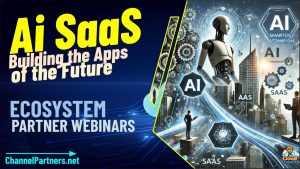From SaaS to Agents: AI’s Impact on the Future of Software
In recent years, the technology landscape has witnessed a remarkable evolution from Software as a Service (SaaS) to Artificial Intelligence (AI) Agents.
 Software as a Service, commonly known as SaaS, marked a significant shift in the software industry.
Software as a Service, commonly known as SaaS, marked a significant shift in the software industry.
It allowed businesses to access software applications over the internet on a subscription basis, eliminating the need for on-premise installations.
SaaS offered scalability, flexibility, and cost-effectiveness, making it a popular choice for organizations of all sizes.
The Evolution to Ai Agents
As technology continued to advance, Artificial Intelligence emerged as a game-changer. AI technologies such as machine learning, natural language processing, and computer vision enabled machines to perform tasks that typically require human intelligence. Businesses started leveraging AI to automate processes, gain insights from data, and enhance customer experiences.
Recognizing the potential of AI, SaaS providers began integrating AI capabilities into their software offerings. This integration enabled SaaS applications to become more intelligent, predictive, and personalized. AI-powered features such as chatbots, predictive analytics, and recommendation engines enhanced the functionality of SaaS platforms, providing users with a more seamless and efficient experience.
As AI became more sophisticated and capable, the concept of AI Agents emerged. AI Agents are intelligent, autonomous entities that can perform tasks, make decisions, and interact with users in a human-like manner. These agents combine the power of AI with advanced automation capabilities to deliver personalized and proactive services.
The evolution from SaaS to AI Agents has had a profound impact on businesses across industries. AI Agents have transformed customer service, sales, marketing, and operations by providing real-time insights, automating repetitive tasks, and delivering personalized experiences. Businesses that embrace AI Agents gain a competitive edge by improving efficiency, enhancing customer satisfaction, and driving innovation.
Looking ahead, the evolution of SaaS to AI Agents is expected to continue at a rapid pace. As AI technologies mature and become more accessible, businesses will increasingly rely on AI Agents to streamline operations, drive growth, and unlock new opportunities. The future holds exciting possibilities as AI Agents revolutionize the way we work, communicate, and interact with technology.
The Future of Digital Business Models: AI Agents
Artificial Intelligence (AI) is transforming the way businesses operate, and AI Agents are at the forefront of this revolution. These intelligent agents have the potential to reshape digital business models, offering new opportunities for innovation and efficiency. Let’s explore how AI Agents will change the future of commerce:
- Enhanced Customer Experience: AI Agents can provide personalized recommendations, assist customers in real-time, and offer tailored solutions based on individual preferences. This level of customization enhances the overall customer experience, leading to increased satisfaction and loyalty.
- Data-driven Decision Making: AI Agents can analyze vast amounts of data quickly and accurately, providing valuable insights for businesses to make informed decisions. By leveraging AI-powered analytics, companies can identify trends, predict customer behavior, and optimize their operations for better outcomes.
- Automation and Efficiency: AI Agents can automate repetitive tasks, streamline processes, and improve operational efficiency. By delegating routine activities to AI, businesses can free up human resources to focus on more strategic initiatives, leading to increased productivity and cost savings.
- Predictive Maintenance: AI Agents can monitor equipment performance in real-time, predict maintenance needs, and prevent costly downtime. By implementing predictive maintenance strategies powered by AI, businesses can optimize their maintenance schedules, reduce operational disruptions, and extend the lifespan of their assets.
- Supply Chain Optimization: AI Agents can optimize supply chain operations by forecasting demand, managing inventory levels, and identifying potential bottlenecks. By leveraging AI in supply chain management, businesses can enhance their agility, reduce lead times, and improve overall efficiency in the logistics process.
- Personalized Marketing Strategies: AI Agents can analyze customer data to create targeted marketing campaigns that resonate with individual preferences and behaviors. By delivering personalized messages and offers, businesses can increase engagement, drive conversions, and build stronger relationships with their customers.
- Continuous Learning and Adaptation: AI Agents can continuously learn from interactions and adapt their strategies based on feedback and new information. This ability to evolve in real-time enables businesses to stay agile, respond to changing market dynamics, and remain competitive in a rapidly evolving digital landscape.
Conclusion
AI Agents are poised to revolutionize digital business models by offering unprecedented capabilities in customer experience, data analytics, automation, predictive maintenance, supply chain optimization, personalized marketing, and adaptive learning. Businesses that embrace AI technology and integrate AI Agents into their operations will gain a competitive edge and thrive in the digital economy of the future.



